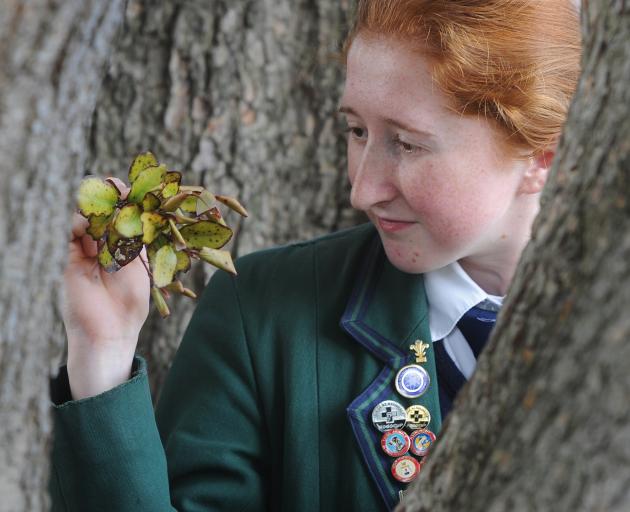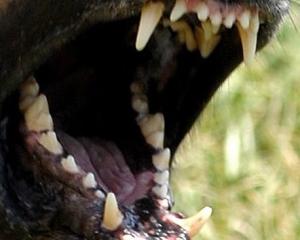
Columba College pupil Corrie Anderson (17) has won another science award for her research on the New Zealand native plant - this time it is the prestigious Royal Society Crest Award, making her only the second South Island secondary school pupil to achieve the accolade.
Crest is an international awards scheme designed to encourage school pupils to be innovative, creative, and to problem-solve in science, technology and environmental studies.
There are five achievement levels in the programme. Gold is the highest and requires pupils to expand their knowledge of specific techniques, language and analysis methods used in their area of research.
It is typically only attained by one or two pupils in the country each year.
Corrie's project investigated the insecticidal properties and chemical structure analysis of horopito (Pseudowintera colorata) - a small evergreen tree, known by many New Zealanders as pepper tree, because its leaves have a hot taste.
She said it had existed in New Zealand for 65million years and its red-splotched leaves had active anti-fungal and insecticidal compounds.
The plant had a long lifespan because fungi and insects were discouraged from attacking its leaves.
It also had antioxidant flavonoids and anti-inflammatory/antiseptic properties, and had been used medicinally since the 19th century.
She said the Crest awards gave her the opportunity to explore and expand her knowledge of science.
``It lets you look at science beyond a high school standard to access and discover new scientific techniques.''
One technique was the opportunity for Corrie to conduct her own column chromatography - a process to separate the components of a chemical, using infrared technology in the University of Otago's refurbished chemistry labs.
She said her research showed there was evidence to suggest horopito could be developed as an insecticide for use on a wide range of plant life.
``I found it could be used as a natural deterrent, rather than some of the harmful chemical ones that are man-made and cause more harm to other plants.''
Earlier this year, her research on the plant won the best-in-fair award at the Aurora Energy Otago Science and Technology Fair.
Next year, she plans to study zoology and ecology at the University of Otago and believes there is still plenty of scope for further horopito research.
``There's so much that can still be investigated, like the difference between South and North Island horopito, its effects on a variety of insects and plant types, and the most effective ways to store horopito extract.''












